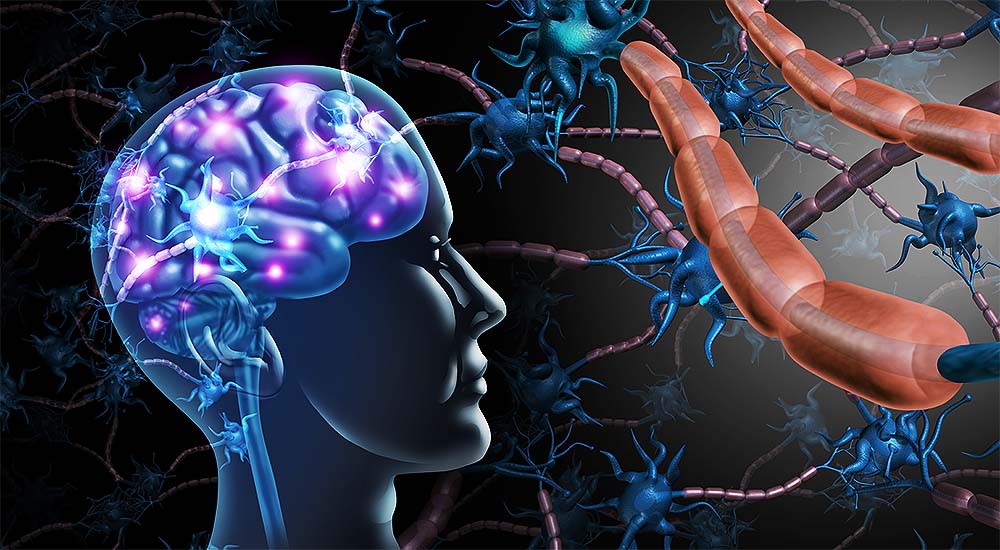Multiple Sclerosis Raises Risk of Celiac Disease Dramatically

Do Patients with M.S. Respond to a Gluten-free Diet?

When they related their improvement to their neurologist, it was frequently met with disbelief or a comment that implied some type of ‘placebo’ effect. Understandably, patients would be very frustrated at the dismissal of what they felt was a significant factor in their health.
While in the past, I’ve only had my clinical experience as a clinical nutritionist to stand on in support of how gluten affects M.S., we now have a wonderful study that reveals the strong correlation between gluten intolerance and MS.
Those with M.S. 10 Times More Likely to Suffer from Celiac Disease
BMC Neurology published a study entitled “Prevalence of Celiac Disease in Multiple Sclerosis” where they reported that the population of individuals suffering from MS appeared to be 5 to 10 times more likely to develop celiac disease than the general population.
Interestingly, their first degree relatives were 16 to 32 times more likely to develop celiac disease. Celiac disease is understood to be associated with different autoimmune and neurological diseases.
To see how this potentially related to MS, the researchers examined 72 patients suffering from MS along with their 125 first-degree relatives and compared them to 123 healthy controls. 10% of the MS patients were found to have positive blood tests for celiac disease as compared to 2% of the healthy controls.
[Note: this study found 2% of the ‘general population’ to have celiac disease. This is significant for we have used the figure of 1% incidence for quite some time. It is my belief that it IS higher and this study certainly gives merit to that supposition.]
First Degree Relatives are at a Higher Risk
Examining the same individuals through biopsy, 11% of the MS patients had celiac disease.
Additionally, an astounding 32% of their first-degree relatives were also found to have celiac disease. No comment was made as to reasons why first-degree relatives would have such a marked increase, but it is quite fascinating.
Could it be that those with neurological illnesses, especially of the autoimmune variety should not only be tested themselves for celiac disease but should also ensure that their family members be screened?
Conditions known to be associated with celiac disease, including dermatitis and iron deficiency anemia, were found in 57% and 39% of the MS patients respectively.
Not surprisingly, considering that MS and celiac disease are both autoimmune diseases and where there is one autoimmune condition there is usually more, the researchers also found indications of other autoimmune conditions present in these affected individuals.
Specifically, autoimmune thyroid disease was found in 26% and rheumatoid arthritis in 15% of the MS patients.
The Gluten-free Diet ‘Worked’!
When a gluten-free diet was instituted, all of the MS patients with celiac disease improved ‘considerably’. Not only did their digestive complaints improve but so did their nervous system symptoms.
Dr. Rodrigo, the main researcher stated that: “So the main message that we want to [get out] to doctors who attend MS patients is to perform clinical, serological [blood], genetic, and histologic [biopsy] studies directed to find a possibility associated [celiac disease]”. I concur completely.
Some unanswered questions that remain for me are:
- What percentage of those suffering from MS are gluten sensitive vs. celiac? What about their first-degree relatives – how many of them have gluten sensitivity?
- Would diagnosing gluten intolerance earlier in life have prevented the onset of MS?
In summary, their conclusions were that increased efforts should be aimed at the early detection and dietary treatment of celiac disease amongst affected MS patients.
If You Have Neurological Problems, Get Checked for Gluten Intolerance
If you know anyone who suffers from MS or anyone in their family does, they should definitely be screened for gluten intolerance. Further, if you see a neurologist for your MS, please enlighten them as to the results of this study. Neurologists spend much of their day treating such individuals. Imagine if they understood this connection and could make a huge difference in their patient’s lives by diagnosing celiac disease or gluten sensitivity.
Do you need help with your health?
We have the diagnostic and testing tools, the clinical experience, and a different medical approach to discovering the root cause of why you have the symptoms that are bothering you. As long as you are ready to make some dietary and lifestyle changes, we can help you. We will "hold your hand" through the changes, step by step, to make each step an easy one. We are located in Clearwater, FL, at 1000 S Ft Harrison, at the corner of Ft. Harrison Ave. and Magnolia St. There is plenty of parking space directly accessible from Ft Harrison. If it is not convenient for you to come to Root Cause Medical Clinic, we offer telehealth/telemedicine consultations to residents of certain states. Call us for details.
Contact us for a Consultation – Call 727-335-0400

Dr. Vikki Petersen DC. CCN
Founder of Root Cause Medical Clinic
Certified Functional Medicine Practitioner
Dr Vikki Petersen is a public speaker, author of two books, several eBooks and creates cutting edge content for her YouTube community. Dr Vikki is committed to bringing Root Cause Medicine and its unique approach to restoring health naturally to the world.
Ask a Doctor
Have a health concern you'd like to speak with a doctor about? Or just want clarity on a subject? Ask Us!


